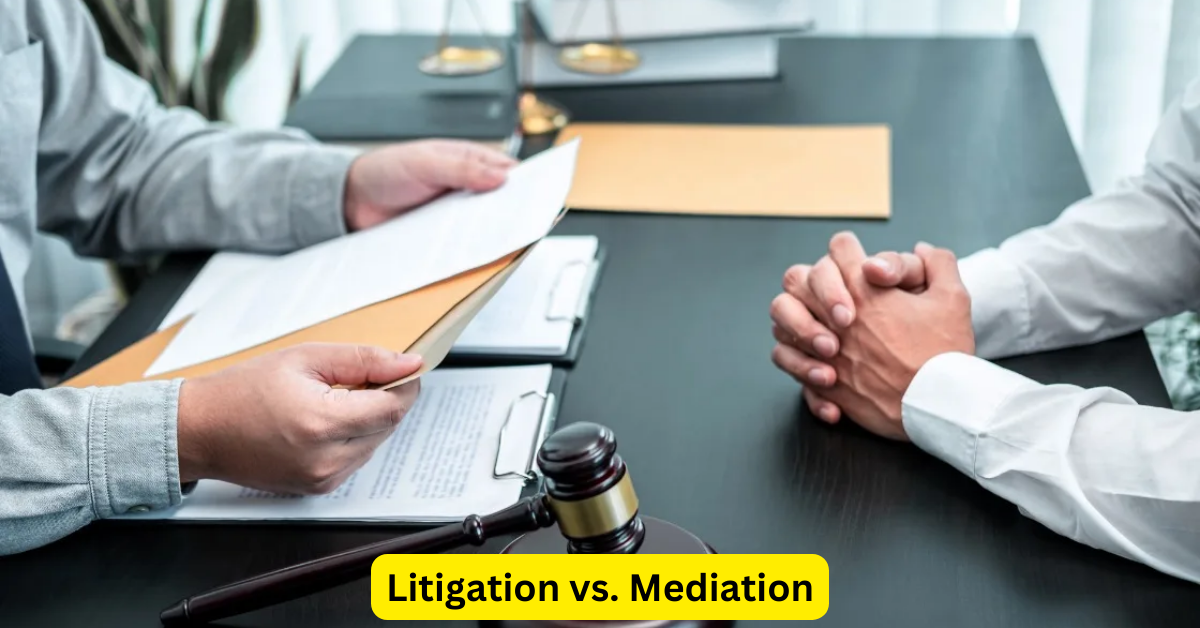Choosing between litigation and mediation is a critical decision that can significantly impact the outcome of a legal dispute. Attorneys carefully evaluate various factors to determine the most suitable approach for their clients. Understanding the key differences between these methods and the criteria attorneys use to decide can help clients make informed choices.
1. Nature and Complexity of the Dispute
The nature and complexity of a legal dispute are primary considerations in deciding between litigation and mediation. Litigation, a formal process involving a court trial, is often chosen for complex cases with significant legal or factual disputes. It provides a structured environment where evidence is presented, and a judge or jury makes a binding decision. On the other hand, mediation, an informal and flexible process, is well-suited for disputes where parties seek a mutually agreeable solution. Attorneys assess the intricacies of the case to determine which approach aligns best with the dispute’s complexity.
2. Time and Cost Considerations
Time and cost are crucial factors influencing the choice between litigation and mediation. Litigation can be lengthy and expensive, with court fees, attorney fees, and prolonged discovery processes. This can be a deterrent for parties seeking a swift resolution. Mediation, in contrast, is generally faster and more cost-effective. It involves a neutral mediator who facilitates discussions between parties to reach a settlement. Attorneys consider their clients’ budget constraints and urgency for resolution when recommending mediation over litigation.
3. Relationship Between Parties
The relationship between disputing parties plays a significant role in determining the appropriate approach. Litigation is adversarial and can strain relationships further, making it less desirable for parties who wish to maintain an ongoing relationship, such as business partners or family members. Mediation fosters cooperation and communication, allowing parties to work collaboratively towards a resolution. Attorneys often suggest mediation when preserving relationships is a priority for their clients.
4. Degree of Control and Confidentiality
Attorneys also weigh the degree of control and confidentiality desired by their clients. In litigation, control over the outcome is relinquished to the judge or jury, and proceedings are typically public. This lack of control and public exposure can be undesirable for some clients. Mediation offers greater control, as parties actively participate in crafting the settlement agreement. Additionally, mediation is confidential, which can protect sensitive information and reputations. Clients seeking to maintain control and privacy are often steered towards mediation by their attorneys.
5. Likelihood of Settlement
The likelihood of reaching a settlement is another critical consideration. Mediation is geared towards settlement and is often successful in resolving disputes amicably. However, some cases may require the authoritative decision that only a court can provide. Attorneys evaluate the willingness of parties to negotiate and compromise when deciding if mediation is a viable option. If parties are entrenched in their positions, litigation may be deemed necessary.
Conclusion
Attorneys play a pivotal role in guiding clients through the decision-making process between litigation and mediation. By assessing the nature of the dispute, time and cost implications, the relationship between parties, the desired degree of control and confidentiality, and the likelihood of settlement, attorneys help clients choose the approach that best serves their interests. Understanding these factors enables clients to make informed decisions and navigate their legal disputes effectively.

